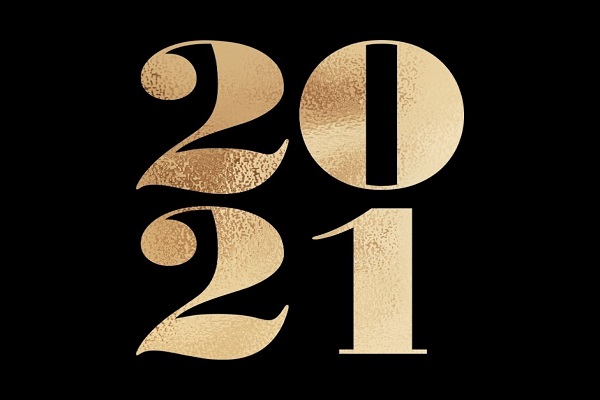
This time last year, I published an opinion piece on the dawn of a new decade in Luxembourg. Little did I (or many of us) know, the country would be under lockdown just over two months later due to the rapid global spread of the new “coronavirus disease 2019” (COVID-19). Suddenly, our lives were turned upside down, in Luxembourg and worldwide. People were getting ill; many were dying from this new virus. Holidays and weddings were cancelled. DIY haircuts and teleworking became the new norm. In the absence of gatherings and holidays, some of us even took the plunge and adopted not one but two pets with whom we could share these difficult times…
A hopeful but cautious start
As 2020 came to an end, there appeared to be some light at the end of the tunnel, with the long-awaited approval of a handful of promising vaccines – not to mention the bitter-sweet agreement of a Brexit deal after what seemed like never-ending negotiations.
It would be naïve to believe that just because 2020 was over, so too was the pandemic, but this new year has still brought with it some much-needed hope. Of course, patience and solidarity remain as important as ever, as new restrictions across Europe and beyond have shown. Just yesterday, the Luxembourg government announced plans to extend the closure of restaurants and bars, as well as continued restrictions on gatherings. In addition, the number of doses arriving and being rolled out in Luxembourg and across the European Union has been a source of disappointment for many. Luxembourg launched its vaccination campaign at the end of December; shortly after, it was reported that only 6% of the population was expected to have received the vaccination by March. Progress appears to be slow, especially considering that experts agree that 70% of a country’s population need to get vaccinated to achieve herd immunity. The detection and spread of a new and apparently more contagious British variant of the virus (B.1.1.7), which has now reached Luxembourg, has also caused reason for concern.
On the other hand, recent coronavirus figures in the Grand Duchy are significantly lower than those recorded before Christmas. The question is: will the return of the last batch of residents who left the country over Christmas paired with an easing of certain lockdown restrictions and the reopening of schools reverse this downward trend?
Another year marked by COVID-19?
2020 may have started out well, at least in Luxembourg, but the year quickly became synonymous with the COVID-19 pandemic. With cultural and gastronomical venues closed for a significant period and major events such as the beloved Schueberfouer and traditional Christmas Markets cancelled, coronavirus featured heavily on the country’s political agenda, as well as on the front (web)pages of Luxembourg’s newspapers.
So far this year, not much has changed in this regard. Despite the imminent reopening of cinemas, theatres and other cultural and commercial establishments, plays, concerts and events such as the popular Vakanz travel fair, traditionally held in late-January, continue to be postponed and Luxembourg’s Parliament, the Chamber of Deputies, will once again focus this week on debating and voting on the recently announced changes to lockdown measures.
Unlike the last couple of years, however, there do not (yet) appear to be any political shake-ups on the agenda. This should bring some stability to a period which continues to be anything but certain. Moreover, the agreement of a Brexit deal might (finally) provide British nationals living in Luxembourg (and elsewhere in the EU) some clarity - although for many, this marks the end of a very long, very sad story.
Regarding technological advances, the launch and expansion of 5G will surely feature heavily on this year's agenda. Despite concerns from some members of the public, Luxembourg mobile network operators began rolling out this technology in autumn last year. POST Luxembourg was the first to do so, on 16 October, with others quickly following suit. Coverage was initially limited to Luxembourg City and surrounding areas, although this year will see the network expanded nationwide.
2021 is also expected to be an exciting year (circumstances permitting) for sports fans in the Grand Duchy and beyond; the new national football and rugby stadium is set to host its first official match in March; Luxembourg will kick off its FIFA World Cup Qualifying Campaign (Group A) with an away match against Ireland on 27 March; the Tokyo Olympics, initially scheduled to take place in 2020, are now being held this summer (23 July to 8 August).
Apart from the roll-out of coronavirus vaccinations, notable global events this year include the inauguration of the new US President Joe Biden on 20 January and Germany's federal elections, which are being held on 26 September and will mark the end of Angela Merkel's 16-year tenure as German Chancellor. In November, world leaders will come together once again to address the ever-present challenge of climate change at the COP26 in Glasgow.
The "new" normal?
The organisation of such events paired with the launch of vaccination campaigns may offer some semblance of "normality", but will things ever really go back to how they were before the pandemic? Should we keep some aspects of our new "normal", such as teleworking and opting for more online shopping and streaming? In this case, will cinemas survive? Will more films go straight to streaming services? How will the arts and culture sector, which has already suffered significantly at the hands of coronavirus, come out of all this?
Looking at the current pace of vaccination, it could be that we will continue to use masks for two to three years in certain situations. On the one hand, social distancing and masks appear to have led to fewer people picking up standard bugs. On the other hand, as noted by Prime Minister Xavier Bettel in Tuesday's press conference, people are suffering because of a lack of social contact. The consequences of the pandemic and related lockdown restrictions on mental health should not be underestimated.
Whilst traditional shops have suffered, online shopping and delivery services have flourished during the pandemic as more people have ordered online. Many people have also developed pastimes, from baking and craft work to gardening. The shift to teleworking has surely contributed to this phenomenon, with employees looking for productive ways to pass the time saved on commuting and parents searching for creative ideas to keep their children entertained during homeschooling.
Is teleworking something that will continue to be promoted in future? More employees working from home (for instance, 50% at home and 50% at the office) could ease traffic congestion and reduce pollution. On the other hand, this may lead to a reduction in numbers of people travelling into cities for work. Would cities then suffer a loss in footfall, resulting in fewer restaurants and other services? Perhaps then the suburbs would flourish with more restaurants, shops and services popping up!
And finally, has the pandemic spelt the death of desktops with an increasing number of people using laptops as they can work both from home and at the workplace? Will the trend to move to open-plan offices (again) be reversed in favour of smaller and / or individual offices?
Whilst only time will reveal the answers to these questions, one thing is for sure: this pandemic has had and will continue to have a profound impact on our lives well beyond 2020.









